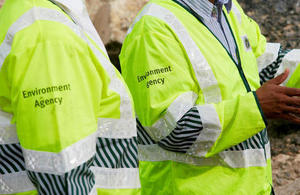Government launches COVID-19 Antivirals Taskforce to roll out innovative home treatments this autumn
- New Antivirals Taskforce could identify and deploy innovative COVID-19 treatments as early as autumn
- Treatments could be taken at home after a positive test or exposure to COVID-19 to reduce transmission and speed up recovery
- Drugs could help combat a rise in infections or new variants over the winter flu season
A new Antivirals Taskforce has been launched by the government to identify treatments for UK patients who have been exposed to COVID-19 to stop the infection spreading and speed up recovery time.
The taskforce will search for the most promising novel antiviral medicines that can be taken at home and support their development through clinical trials to ensure they can be rapidly rolled out to patients as early as the autumn.
The taskforce will also look at opportunities to onshore the manufacture of antiviral treatments.
The aim is to have at least 2 effective treatments this year, either in a tablet or capsule form, that the public can take at home following a positive COVID-19 test or exposure to someone with the virus.
This will be another vital tool to combat any future increase in infections and limit the impact of new variants, especially over the flu season later this year.
Prime Minister Boris Johnson said:
The success of our vaccination programme has demonstrated what the UK can achieve when we bring together our brightest minds.
Our new Antivirals Taskforce will seek to develop innovative treatments you can take at home to stop COVID-19 in its tracks. These could provide another vital defence against any future increase in infections and save more lives.
Health and Social Care Secretary Matt Hancock said:
The UK is leading the world in finding and rolling out effective treatments for COVID-19, having identified dexamethasone, which has saved over a million lives worldwide, and tocilizumab.
In combination with our fantastic vaccination programme, medicines are a vital weapon to protect our loved ones from this terrible virus.
Modelled on the success of the vaccines and therapeutics taskforces, which have played a crucial part in our response to the pandemic, we are now bringing together a new team that will supercharge the search for antiviral treatments and roll them out as soon as the autumn.
I am committed to boosting the UK’s position as a life science superpower and this new taskforce will help us beat COVID-19 and build back better.
The antivirals could be used alone or in combination with one another in order to increase effectiveness and reduce the risk of further mutations.
The new taskforce will sit alongside the government’s existing Therapeutics Taskforce, which will continue its vital work to identify and supply treatments found to be effective in clinical trials, for all stages of a patient’s exposure and response to COVID-19.
Since the beginning of the pandemic, the UK has proven itself to be a world-leader in identifying and rolling out effective treatments for COVID-19 – including the world’s first treatment dexamethasone, which has since saved 22,000 lives in the UK so far and an estimated million worldwide.
The UK’s renowned life sciences sector makes it the ideal base for the brightest of global innovators to research and progress cutting-edge treatments for COVID-19 through the clinical trials process here in Britain.
Sir Patrick Vallance, Government Chief Scientific Adviser, said:
The speed at which vaccines and therapeutics such as dexamethasone have been identified and deployed against COVID-19 has been critical to the pandemic response.
Antivirals in tablet form are another key tool for the response. They could help protect those not protected by or ineligible for vaccines. They could also be another layer of defence in the face of new variants of concern.
The taskforce will help ensure the most promising antivirals are available for deployment as quickly as possible.
Dr Nikita Kanani, Medical Director of Primary Care for NHS England, said:
Alongside caring for 400,000 COVID-19 patients since the start of the pandemic, the NHS has saved lives around the world through its contribution to developing the first ever treatment for COVID-19, dexamethasone, as well as administering the first vaccine for the virus, outside of clinical trials.
The NHS has put research into reality at record speed during the pandemic and this taskforce will now help us to identify and roll out even more new, convenient treatments for patients with COVID-19.
A competition to identify a chair for the Antivirals Taskforce will be launched shortly, and further details on the structure of the taskforce will be set out in due course.
On 16 June, the government-funded RECOVERY trial became the first to identify the benefits of dexamethasone in reducing mortality by 20% in patients requiring oxygen support and 35% for ventilated patients, following a readout from the RECOVERY trial and later supported by the WHO and REMAP-CAP.
Through securing a supply chain and stockpile of the drug, we were able to ensure quicker distribution to tackle the effects of COVID-19.
Dexamethasone has since shown to have saved 22,000 lives in the UK so far and an estimated million worldwide.
More recently, the REMAP-CAP trial demonstrated the benefits of tocilizumab and sarilumab, as well as the RECOVERY trial, which found tocilizumab reduced the relative risk of death for patients on oxygen by 14%, when administered in addition to dexamethasone.
The Therapeutics Taskforce alongside RAPID C-19 worked swiftly to ensure that patients were able to receive treatment where clinically appropriate straight away.

